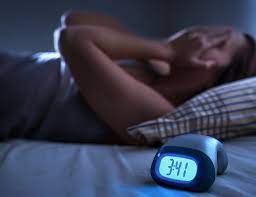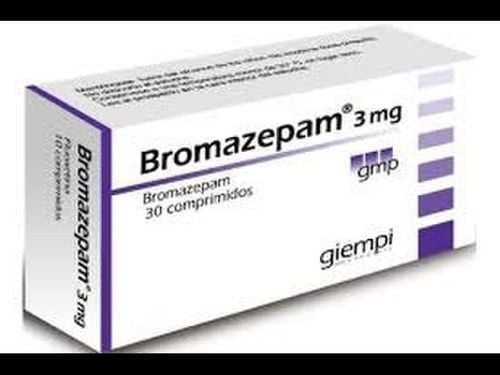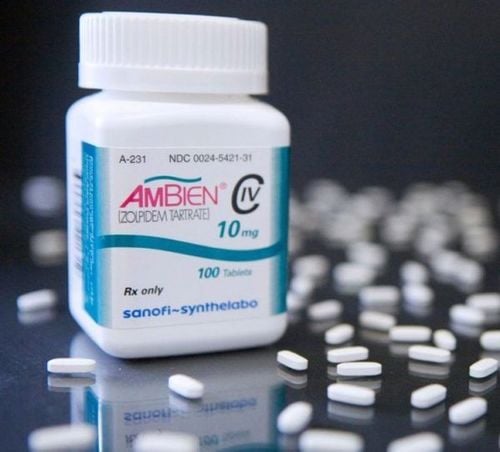This is an automatically translated article.
EDS is characterized by a history of frequent insomnia at night, but the occurrence of drowsiness occurs during the day, leading to reduced work productivity, potential accident risk if drowsiness occurs while driving. car or do dangerous jobs that require concentration.1. An overview of insomnia and excessive daytime sleepiness (EDS)
Insomnia and excessive daytime sleepiness (EDS) can occur for a variety of reasons, including unsatisfactory nighttime sleep due to dreams that wake the patient. However, during the day, you can fall asleep at any time.When sleeping during the day, the amount of sleep varies from a few to many times and each time can last for a few minutes or a few hours. When drowsiness occurs, the patient can only temporarily resist the desire to sleep for a while, then wake up after awakening.
Sleepiness tends to occur in certain circumstances such as when reading, watching television, ... but can also occur in complex tasks such as driving, giving presentations, writing, eating, etc. .. They can also sometimes experience episodes of falling asleep without warning.
Consequences of EDS include:
Reduced work productivity, discord in personal relationships. Poor concentration, low motivation. From work factors that lead to depression, reduced quality of life. Especially dangerous of potential accidents because drowsiness occurs without warning, especially due to car collision while driving, doing dangerous work.

Mất ngủ vào ban đêm là tình trạng nhiều người gặp phải
2. EDS . Causes and Factors
2.1 Predisposing factors Factors contributing to insomnia and excessive daytime sleepiness (EDS):Frequent sleep deprivation: Our nighttime sleep is affected by many factors. factors such as the use of caffeine or particular stimulants near bedtime or in the afternoon in susceptible patients. Prolonged night sleep effects causing insomnia Exercising or being too excited at the time of bedtime. Sleep time is changed frequently, possibly due to work, raising children... The patient compensates for the lack of sleep at night by waking up late or napping more than sleeping at night. Leads to the risk of EDS 2.2 Causes In addition, insomnia and excessive daytime sleepiness (EDS) are also caused by a number of factors such as:
2.2.1 Sleep regulation disorders Sudden emotional stress such as job loss, hospitalization, loss of loved ones... can cause insomnia, a factor leading to EDS. Symptoms usually go away after the stress subsides.
Insomnia is usually transient and usually short-lived. However, if daytime somnolence, nocturnal insomnia, and fatigue appear to interfere with daytime functioning, pharmacological treatment and stress management are recommended.
2.2.2 Neuropsychiatric insomnia Insomnia regardless of cause persists for a long time even after controlling for risk factors, the patient still feels anxiety causing insomnia at night, then wakes up with a tiring day.
People with insomnia due to neuropsychiatric factors often have difficulty initiating sleep, tossing and turning, and having difficulty sleeping in spaces at home rather than in other spaces.
2.2.4 Insufficient sleep syndrome (sleep deprivation) Patients with this syndrome always want to be awake when they wake up and despite having enough opportunities to fall asleep, the patient's inability to get enough sleep at night may be due to work This syndrome is possibly the most common cause of EDS.

Stress có thể là nguyên nhân gây mất ngủ vào ban đêm và buồn ngủ ban ngày quá mức
3. Treatment of insomnia and excessive daytime sleepiness
Treatment requires a combination of therapy and medication to achieve optimal results.3.1 Cognitive Behavioral Therapy This therapy is often more difficult and time-consuming, but it lasts longer, up to 2 years after treatment ends.
These inclusive behavioral therapy strategies include:
Proper sleep care: Limit stimulation before bed, a special strategy is to limit time in bed to reduce feelings of insomnia many, difficult to sleep. Practice relaxation before bed. Stress management and stimulation Cognitive therapy. 3.2 Method of dosing Narcotics are used in patients who need prompt treatment and whose insomnia affects the duration of the day, such as excessive sleepiness and fatigue. However, it is necessary to use sleeping pills that need attention and must be very careful, should not be used for a long time.
3.3 Diseases of insomnia due to other organ diseases Diseases causing pain or discomfort such as gout, arthritis, cancer, herniated discs ... make the patient's sleep quality poor. Some people have other medical conditions and have nocturnal seizures that can interfere with sleep, thereby reducing nighttime sleep leading to compensatory sleep.
The method of treatment is to use pain relievers and other symptoms of the disease before going to bed to avoid insomnia at night.
3.4 Neuropsychiatric Sleep Pathology Most major mental illnesses can cause insomnia and EDS. About 80% of patients with major depression have symptoms of insomnia or sleep disturbances. Patients with depression may experience insomnia due to difficulty falling asleep or staying asleep or persistent fatigue that does not improve during the day.
If depression is accompanied by insomnia, a sedative antidepressant (eg, citalopram, paroxetine, mirtazapine) may help the patient sleep. To treat depression these drugs are used frequently in low doses. If depression is associated with EDS, choose an active antidepressant such as bupropion, venlafaxine, certain serotonin reuptake inhibitors such as fluoxetine and sertraline.)

Điều trị chứng mất ngủ và buồn ngủ ban ngày quá mức cần kết hợp giữa liệu pháp và sử dụng thuốc
3.6 Drug-induced sleep disorder Insomnia and EDS can result from the use of CNS stimulants, hypnotics, hormone preparations, anticonvulsants, oral contraceptives, methyldopa, propranolol, alcohol and thyroid hormone ...
This condition can be stopped when taking some drugs, stimulants, but when suddenly stopping sleeping pills, stimulants will cause muscle tremors.
Insomnia and excessive daytime sleepiness significantly affect the quality of life and pose a potential risk of life-threatening accidents. Therefore, it is necessary to treat it as soon as possible when detecting or suspecting the disease to avoid bad consequences. In addition, good sleep care is an effective disease prevention measure.
Please dial HOTLINE for more information or register for an appointment HERE. Download MyVinmec app to make appointments faster and to manage your bookings easily.













